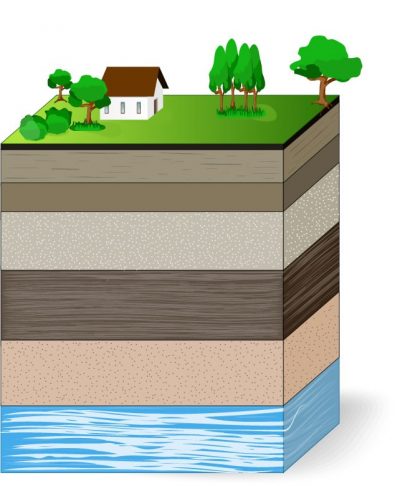 Are you’re thinking of drilling a water well to complement your existing sources or as the primary avenue of water itself? If so, you should know that several factors determine the exact distance of ground penetration (with that question itself being one of those considerations), most notably the separation between the surface and the water bed itself.
Are you’re thinking of drilling a water well to complement your existing sources or as the primary avenue of water itself? If so, you should know that several factors determine the exact distance of ground penetration (with that question itself being one of those considerations), most notably the separation between the surface and the water bed itself.
However, the general rule of thumb ranges anywhere from one hundred to eight hundred feet, although that range may vary depending on which contractor you ask. Typically though, household wells are on average about 300 feet deep with a six-inch casing and a similarly sized diameter. That said, please read on more to why the ideal depth is not a unanimous figure:
- Building codes and regulations
State laws stipulate how you build your well, so before breaking ground in a new home, it’s prudent to consult government offices to find out your area’s specific policies. Usually, the common standard is that the casing reaches the bedrock and that it is at least twenty feet long. Well-cap reinforcement, grouting, and sealing requirements also vary from place to place. - Rock formations
Sometimes, depending on the rocky nature of the landscape, you can reach water at one hundred feet or ten times the distance. The depth will be more inclined towards the latter if the area in question has an extremely rocky underlying. The pipe diameter is also directly proportional to the depth, with the size of piping hinging directly on the storage capabilities of the cavity. The large this storage allowance is, the larger the diameter. - Water quality
The quality of water gets better with depth, considering that top lying water is at the mercy of moles and other underground animals. Of course, the local governments have put in place regulations with regards to minimum depths to get around this problem. However, it remains the case that the deeper you drill, the lesser the risk of surface contamination not only from soil organisms but also chemical pollutants. Your water tastes excellent or, more accurately, there is no disturbing aftertaste. - Longevity
Silting up at the bottom proves the undoing of wells, but with a deeper one, you won’t have to worry about that for a long time to come. Coupled with a low draw rate, you’ll be looking at topnotch service for a couple of decades. Conversely, shallow wells silt up at an alarming rate and given the cumbersome and expensive nature of cleaning out existing wells; you’ll be hard placed to find anybody providing such services. If you do, it’ll be at an astronomical fee. - Water table fluctuations
The level of the water table also varies according to seasonal differences, an aspect your contract generally factors in before giving you a drilling estimate. Usually, the ultimate depth depends on the water table level during the lowest season of the year, something they’ll be able to determine by looking through annual statistical data for the past couple of years. In overly dry areas, the depth can fluctuate wildly. - Surface contamination
There is no doubt that deeper wells ensure bacterial contamination afforded by surface water is at a minimum, but it can prove a double-edged sword. With added casing and well depth, water has to traverse rock, soil, and other underground filter sources for a longer time than is the case with a shallow well. Consequently, harmful constituents within these rocks can eventually seep into this water. Additionally, minerals can also make their way into the water, thereby requiring considerable costs to soften it. However, your contractor should help you reach a suitable depth compromise that offers the best of both worlds with little of the disadvantages.
At the end of the day, your best bet at drilling to an ideal depth for reliable water supply lies with a water well-drilling contractor. Advisably, look to one with a wealth of experience in your area as such a company has a good feel of the location’s water base and geography in general. These professionals can give you an accurate estimate so that you can set your finances in order. However, keep in mind that well depth estimation is never a sure thing and that you might have to pay beyond your initial budget based on the proposed design.
Give Ries Well Drilling Inc a call to answer any questions you may have about our water well drilling services. We can be reached at (586) 784-9516!
We provide Water Well Drilling Services in the following Michigan Counties:
